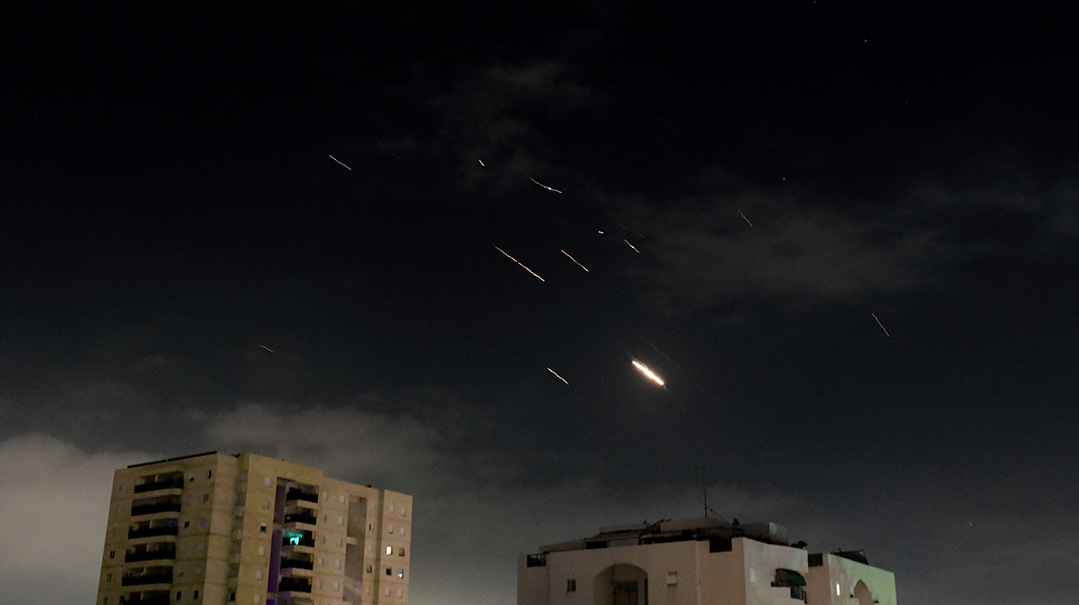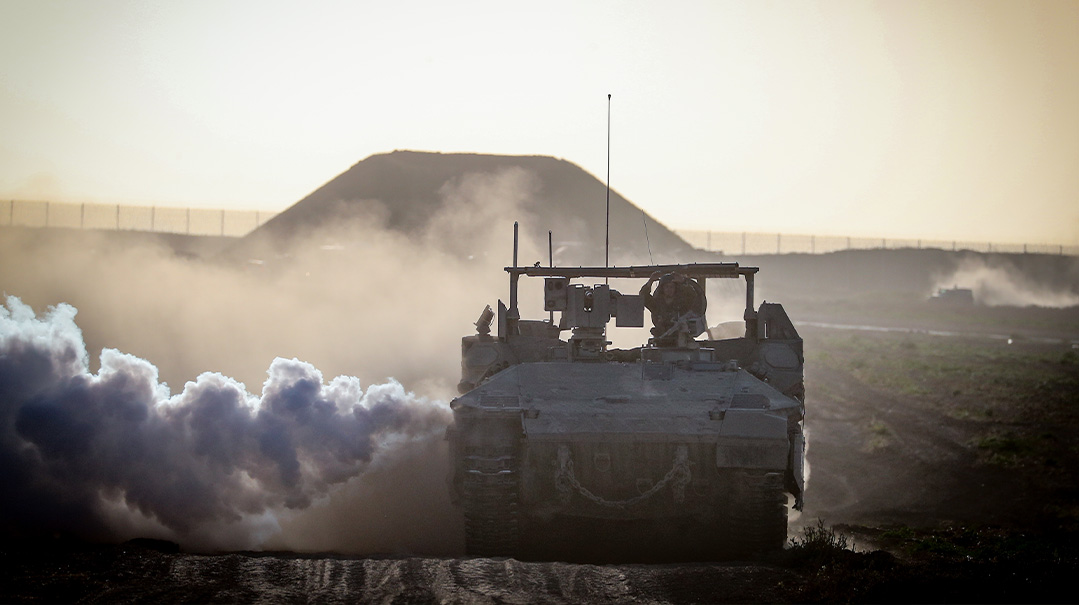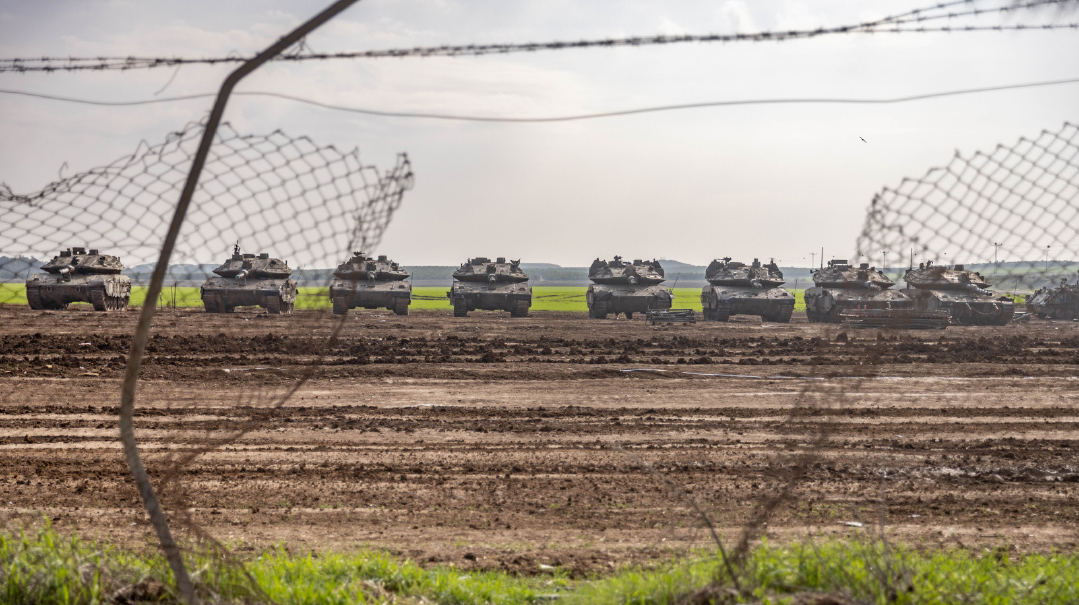Jewish Exceptionalism

That’s the vision of Vehi She’amdah: the promise to Avraham is that Jewish exceptionalism has an upside

T
he Berditchever in me has long wanted to strap on a pair of wings and soar over a million Pesach Sedorim. I want to see the chassidim in Williamsburg and the avreichim in Bnei Brak, the Jews of London and the Jews of Lima. I want to see religious Jews and secular, the chaburah matzah Yid and the Manischewitz brigade. I want to see their differences — but mainly I want to see their similarity. Because on this night, 97 percent of Israeli Jews and 70 percent of their American counterparts commemorate Yetzias Mitzrayim in some way. Imagine a Heaven’s-Eye view of that.
That wish is stronger this year, because of all Seder nights, this one will be different. After the most frightening six months since the Holocaust, we’ve changed, and that will be expressed in song. If on a given year, Mah Nishtanah — adorably squawked by children everywhere — is the Seder anthem, this year another tune will come out ahead.
Vehi She’amdah. If you haven’t heard the fervor with which this is sung, from yeshivah kumzitzes to somber gatherings of secular Israelis this year, you’ve been asleep.
It encapsulates the pent-up Jewish pain of a gruesome massacre, horrible war, and a thousand hostile editorials and threats from foreign leaders. The disbelief that, so quickly after “Never again,” we’re here again.
It’s also the distilled expression of a winter’s worth of this column’s thoughts about our current predicament, which is a sharp, painful lesson in Jewish exceptionalism.
Think about the words: Vehi she’amdah — the promise given to Avraham Avinu has stood by us. It’s a promise that despite everything that happens to us, in generation after generation of anti-Semitism and attempts to destroy us, Hashem will always save us.
That’s the regular reading. But there’s another way to interpret it, which is that this is a two-part promise: Just as Avraham Avinu was promised that Hashem would prevent the Jewish People’s destruction, he was also promised that they would be constantly threatened. The precariousness of Jewish existence — relentless anti-Semitism, generations of bigotry, life on the precipice — were all promised to Avraham as well.
Vehi she’amdah. What has stood for us is not just the salvation, but the suffering as well. Like Rabi Akiva’s laughter when he saw the desolate site of the Beis Hamikdash — because the fulfillment of the destruction guaranteed the eventual rebuilding — the inexplicable hatred to which Klal Yisrael is subject is a sign that abnormal rules apply to us. That, in turn, is a guarantee that the tunnel will end with light.
If Rabi Akiva had read today’s headlines, he would undoubtedly laugh. Take Iran’s massive attack on Israel a few days ago. Long before Tehran’s drone and missile volleys exploded like pyrotechnic popcorn, the well-known Chazal about Persia, Arabia, and Edom’s role in the arrival of Mashiach was quoted everywhere. Which other country can say that its foreign policy appears in a Midrash?
Or take the Economist cover from a few weeks ago, which could have been written by ChatGPT with a prompt from Bilaam’s prophecy. Featuring a wind-blasted Israeli flag against a background of destroyed buildings, it said starkly, “Israel Alone.” It took precisely no time for social media to meme about the “Nation That Dwells Alone.” Which run-of-the-mill people do these Biblical references happen to?
Then there’s the unhinged reaction from Israel’s allies to the sights coming out of Gaza. There’s a very logical reason that so many civilians have died — because Hamas ensures that they do. The West knows that there is no alternative, and yet holds Israel to a standard that literally no combatant in the history of warfare has ever been subjected to. The victim-blaming is so laughable that it’s a wonder that White House spokesmen can keep a straight face. Once again, why do these things only happen to us?
That’s what the Haggadah means: The attacks on the Jewish People are so persistent and the double-standards so blatant that it’s clearly about something else. It’s part of the process that began with Avraham and has been playing out ever since.
For six long months, we’ve waited in vain for an Entebbe-style miracle: a commando mission to rescue the hostages and kill Sinwar, with a lightning raid to decapitate Hezbollah for dessert. We still pray for that miracle, and as we sit in freedom on Seder night, we have to remember the horrific plight of the hostages and their families.
We should keep one thing in mind, though: This time around, let’s not settle. Too often in recent history, we’ve prayed for an end to our difficulties, but in a very limited way. We’re comfortable with the paradigm we live in, and don’t need it to shift.
But like the failed konseptziya — the infamously flawed IDF doctrine that Hamas could be contained — we’re too easily satisfied with less. “If only the world stopped hating us; if only we had better hasbarah; if only a friendly administration were in power,” we think to ourselves, “all would be fine.”
Like the famous mashal of the exiled prince who forgets his origins and asks the king for a new pair of boots instead of asking to come home, we suffer from poverty of expectations.
We shouldn’t just want an end to this current war; we should want a new reality. Why do we have to content ourselves with morsels like a limited military victory and diplomatic breakthrough? Don’t get me wrong, military victories are great, but they’re immediately subsumed with talk of martial genius and technological prowess.
The Haggadah, though, has a different paradigm in mind: Lo al yedei malach — deliverance came not through some middleman, but through Hashem in all His clarity. There was no talk of a diplomatic coup or heroic military operation in Yetzias Mitzrayim — it was obviously the work of a Higher Power.
That’s the vision of Vehi She’amdah: the promise to Avraham is that Jewish exceptionalism has an upside. Just as our constant tribulations defy the laws of nature, so too our deliverance will come about through Divine intervention.
As millions of Jews sing Vehi She’amdah this year, it will have a special resonance. It’s a tefillah to bring our hostages home, end this terrible war — and transform the Jewish People’s reality to one that we only dare dream.
(Originally featured in Mishpacha, Issue 1008)
Oops! We could not locate your form.







